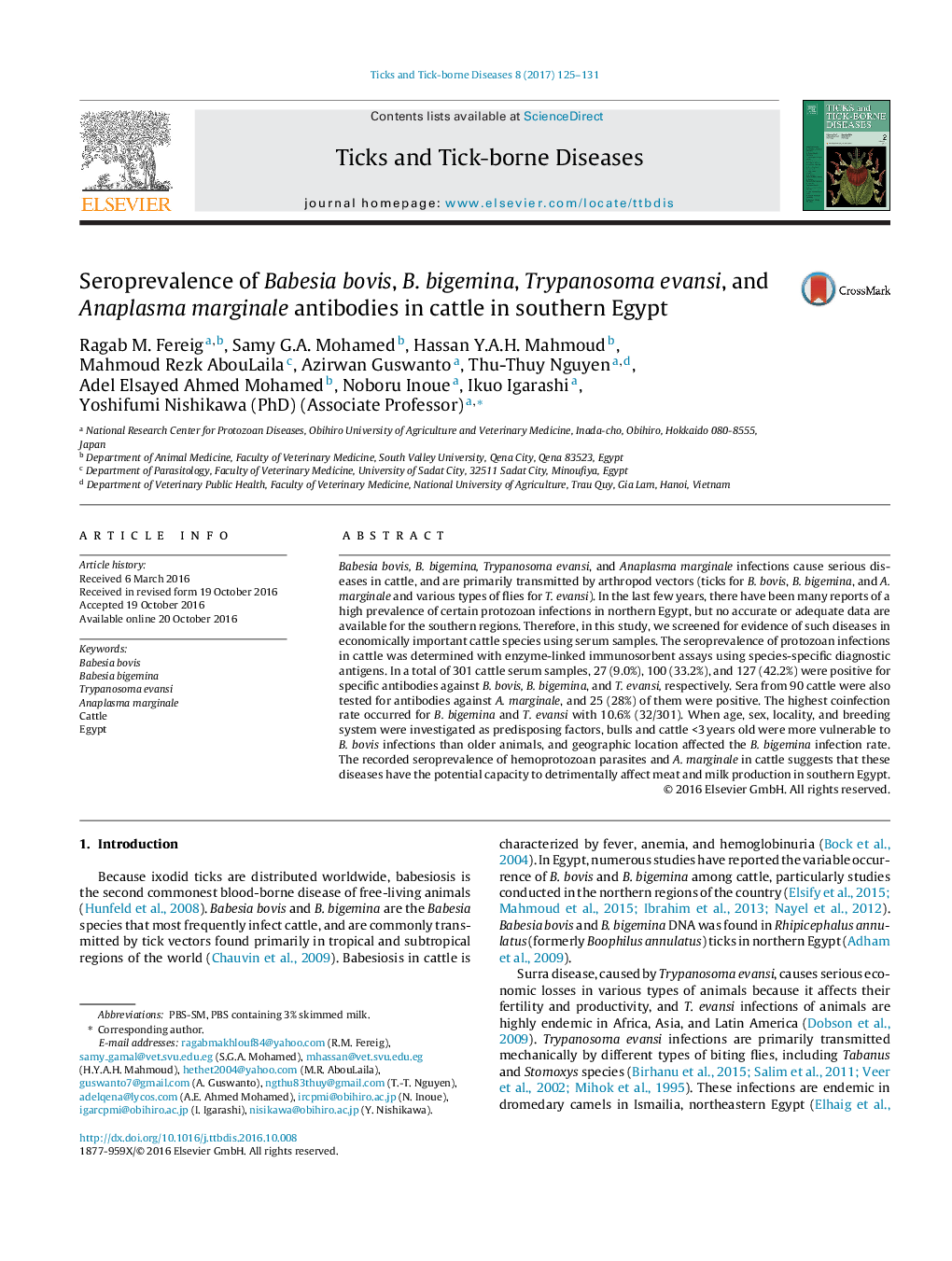| Article ID | Journal | Published Year | Pages | File Type |
|---|---|---|---|---|
| 5546455 | Ticks and Tick-borne Diseases | 2017 | 7 Pages |
Babesia bovis, B. bigemina, Trypanosoma evansi, and Anaplasma marginale infections cause serious diseases in cattle, and are primarily transmitted by arthropod vectors (ticks for B. bovis, B. bigemina, and A. marginale and various types of flies for T. evansi). In the last few years, there have been many reports of a high prevalence of certain protozoan infections in northern Egypt, but no accurate or adequate data are available for the southern regions. Therefore, in this study, we screened for evidence of such diseases in economically important cattle species using serum samples. The seroprevalence of protozoan infections in cattle was determined with enzyme-linked immunosorbent assays using species-specific diagnostic antigens. In a total of 301 cattle serum samples, 27 (9.0%), 100 (33.2%), and 127 (42.2%) were positive for specific antibodies against B. bovis, B. bigemina, and T. evansi, respectively. Sera from 90 cattle were also tested for antibodies against A. marginale, and 25 (28%) of them were positive. The highest coinfection rate occurred for B. bigemina and T. evansi with 10.6% (32/301). When age, sex, locality, and breeding system were investigated as predisposing factors, bulls and cattle <3âyears old were more vulnerable to B. bovis infections than older animals, and geographic location affected the B. bigemina infection rate. The recorded seroprevalence of hemoprotozoan parasites and A. marginale in cattle suggests that these diseases have the potential capacity to detrimentally affect meat and milk production in southern Egypt.
